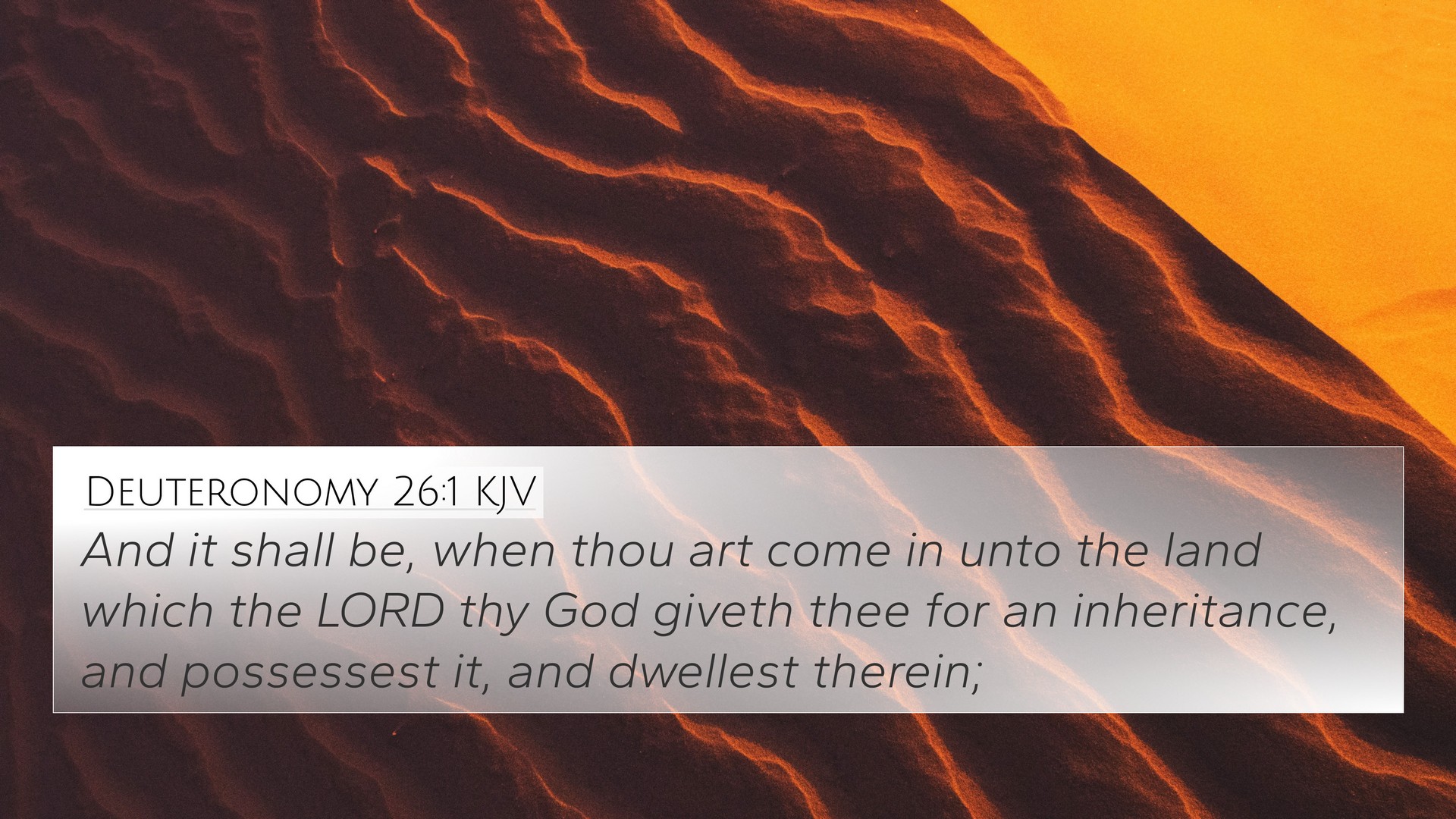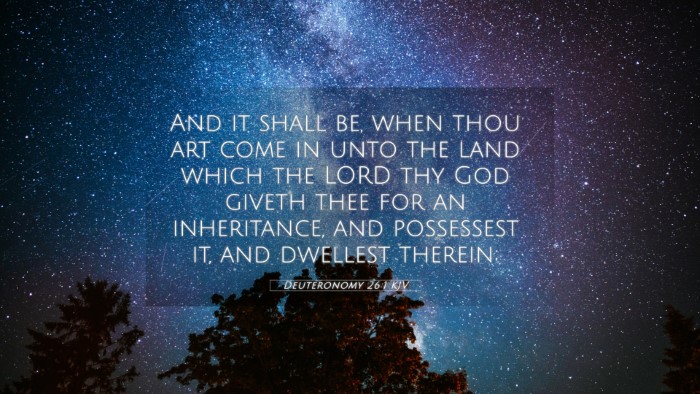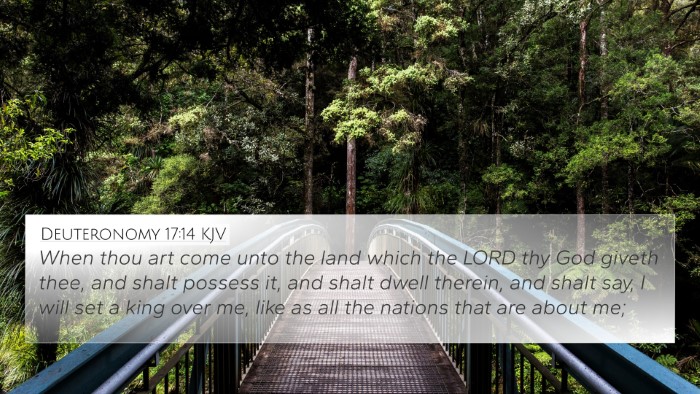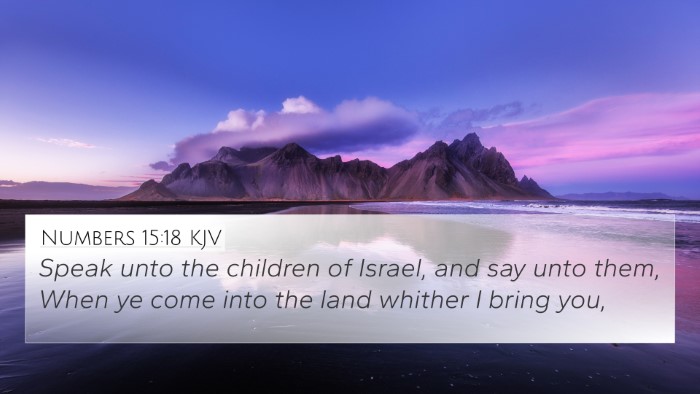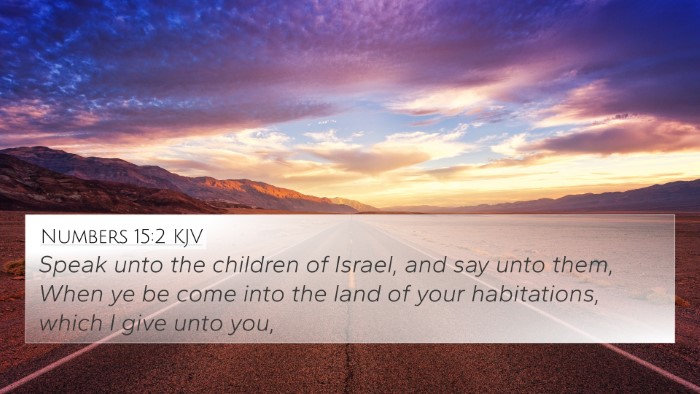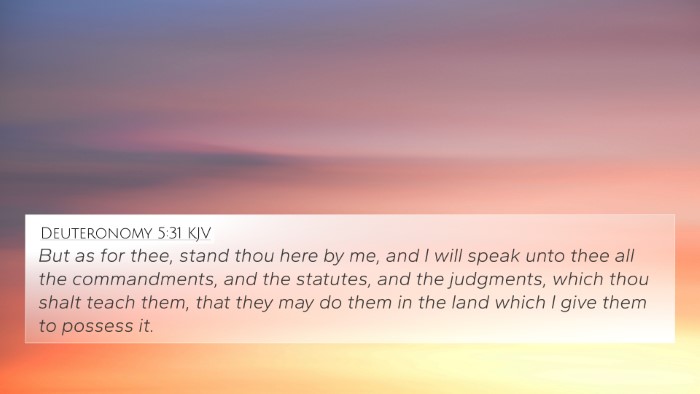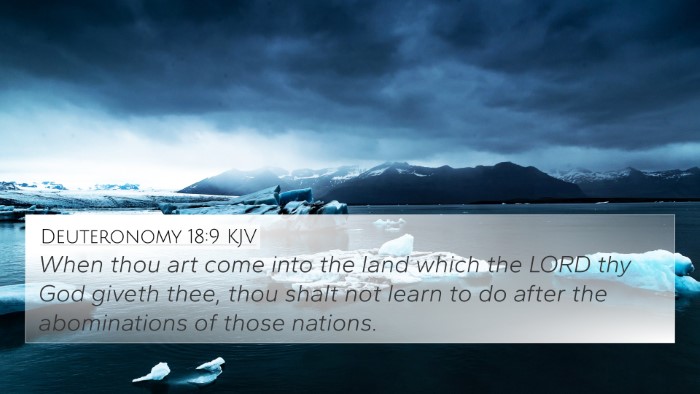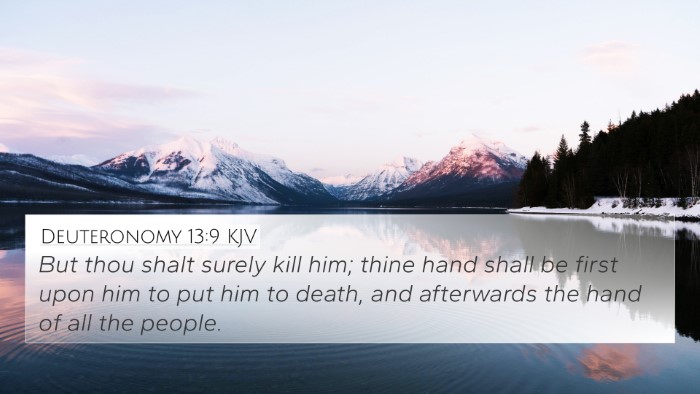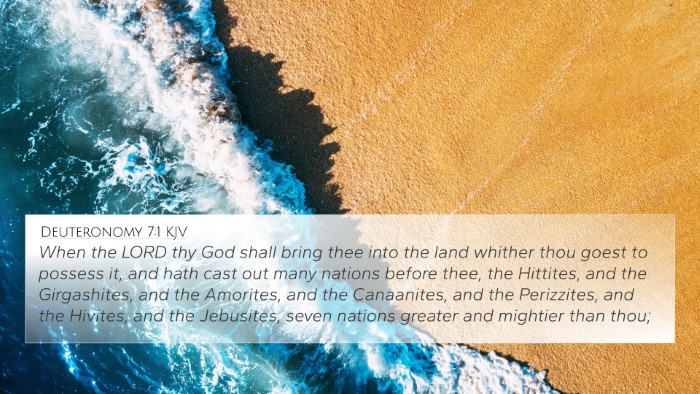Understanding Deuteronomy 26:1
This verse marks a significant transition in the Mosaic Law, presenting the Israelites with instructions on presenting the first fruits of their land. It embodies themes of gratitude, remembrance, and worship, reflecting God's faithfulness and establishing a relationship between the people and their God.
Verse Content:
“And it shall be, when thou art come in unto the land which the LORD thy God giveth thee for an inheritance, and possessest it, and dwellest therein.” (Deuteronomy 26:1)
Key Themes
- Divine Inheritance: This verse emphasizes the concept that the land is a gift from God.
- Act of Worship: The act of presenting the first fruits represents an important act of worship and recognition of God’s provision.
- Community and Identity: The instruction reinforces the community's identity as God's chosen people, bound by covenant.
Bible Cross-References
Here are some significant cross-references that relate to Deuteronomy 26:1:
- Exodus 23:19: “The first of the firstfruits of thy land thou shalt bring into the house of the LORD thy God.”
- Leviticus 23:10-11: Discusses the offering of first fruits and its significance in worship.
- Joshua 1:11: “Pass through the host, and command the people, saying, Prepare you victuals; for within three days ye shall pass over this Jordan.” (the preparation for entering the Promised Land).
- Psalms 147:13: “For he hath strengthened the bars of thy gates; he hath blessed thy children within thee.” (recognizing God's blessings).
- Hebrews 11:9: Highlights the faith of Abraham, who looked for a city whose builder and maker is God — linking to the inheritance theme.
- Matthew 5:5: “Blessed are the meek: for they shall inherit the earth.” (a New Testament parallel to the promise of inheritance).
- Romans 8:17: “And if children, then heirs; heirs of God, and joint-heirs with Christ.” (emphasizing the theme of inheritance for believers).
Commentary Insights
Matthew Henry's Commentary: Henry emphasizes that this command helps establish a habit of gratitude and acknowledgment of God's abundant provision. It illustrates how God's people should express their thankfulness through offerings that symbolize their recognition of His care.
Albert Barnes' Notes: Barnes notes that this verse serves as a reminder of the covenant relationship between God and Israel. The act of bringing the first fruits signifies the people's obedience and devotion to God.
Adam Clarke's Commentary: Clarke points out the importance of presenting the first fruits as it ties back to the acknowledgment of the land’s origin and the continuous dependence on God for sustenance and blessing.
Theological Significance
This verse not only addresses agricultural practices but also serves as a theological reflection on God's generosity and the rightful response of gratitude from His people. It shows how Old Testament rituals foreshadow the New Testament understanding of worship and gratitude.
Practical Applications
- Gratitude in Daily Life: Encourage individuals to acknowledge and give thanks for God’s provision in their lives.
- Community Participation: Foster a sense of community where collective worship and gratitude are practiced.
- Education on Biblical Practices: Teach on the significance of offerings and their implications for modern faith practices.
Further Study
The study of Deuteronomy 26:1 invites believers to engage with the broader themes of inheritance, worship, and gratitude. By understanding cross-references and connecting various scriptures, one can appreciate the unity of thought within the Bible.
Conclusion
Deuteronomy 26:1 provides key insights into the relationship between God and His people, emphasizing that worshiping and recognizing God's blessings is paramount. By examining cross-references and utilizing tools for Bible cross-referencing, believers can uncover the rich tapestry of connections that the Bible offers, deepening their faith and understanding.
